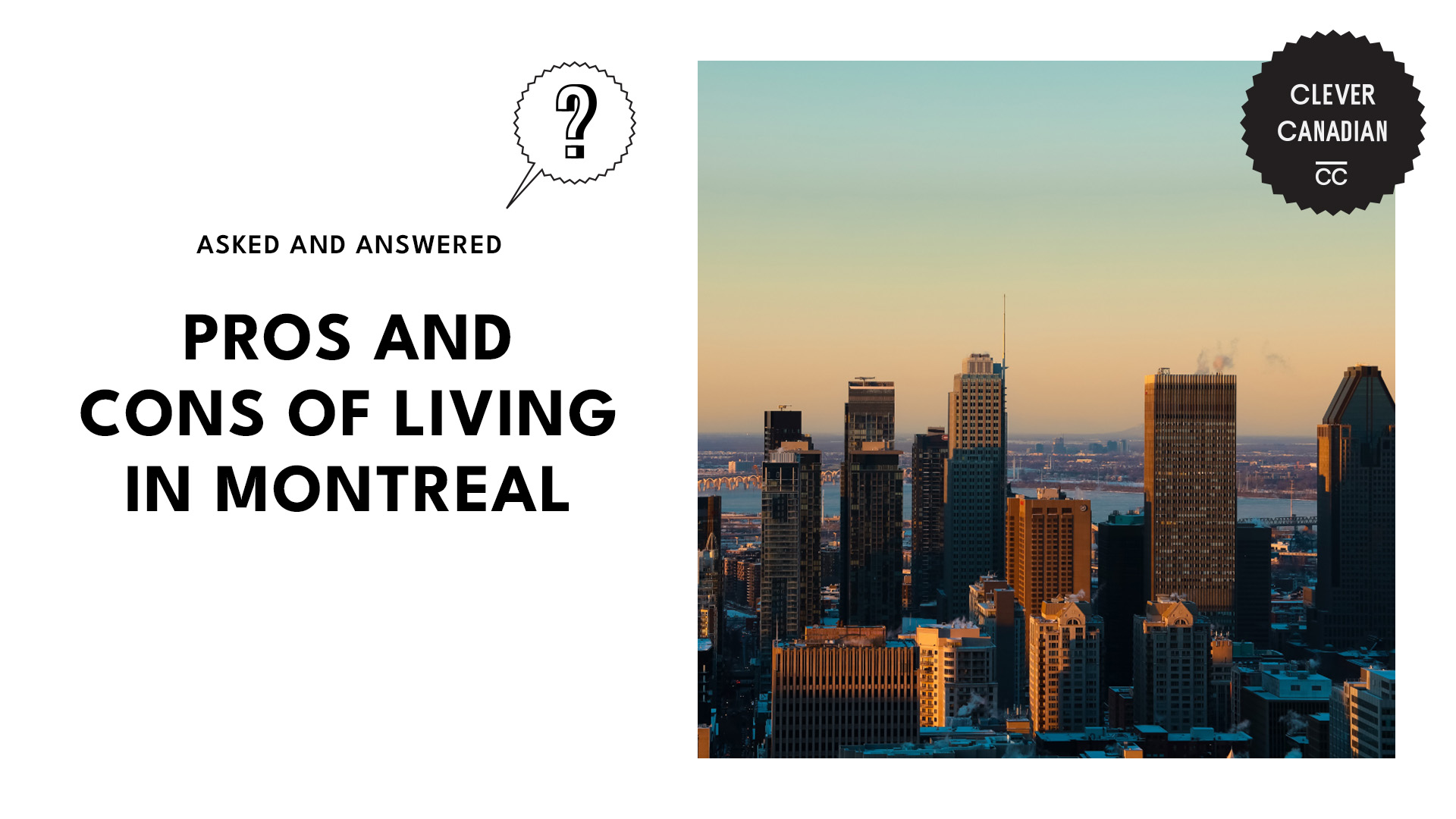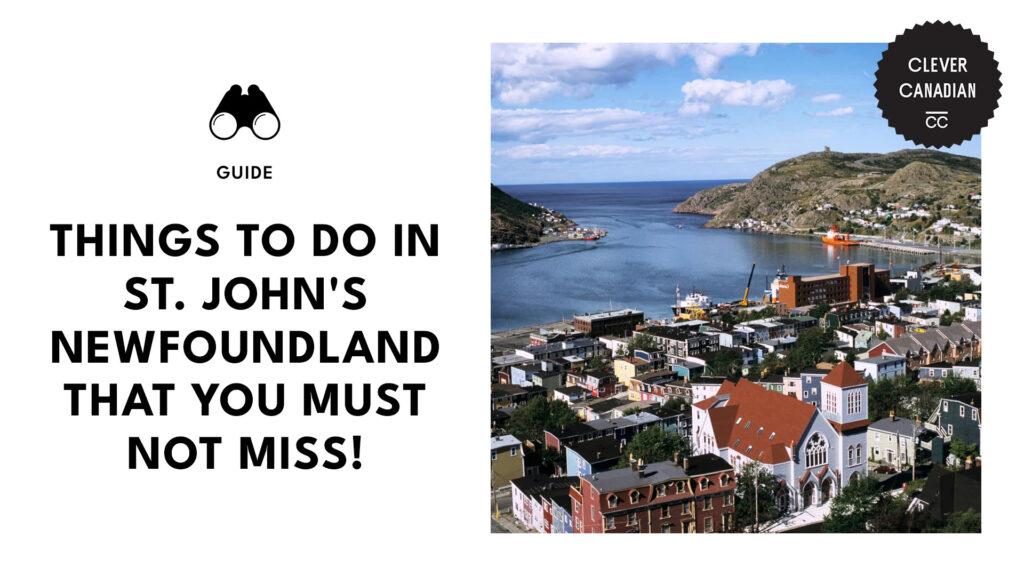Categories > Guides and Tips

Pros and Cons of Living in Montreal
- Is Montreal a good place to live in?
- Living in Montreal: The Good
- Affordable Cost of Living
- Rent
- Food
- Utilities
- Affordable Public Transit
- Vibrant Culture
- Bicycle Friendly
- Quality of Life in Montreal
- Education
- Outdoor Activities
- Living in Montreal: The Bad and Ugly Side of Things
- High Taxes
- Harsh Winters
- Failing Infrastructure
- Worst Traffic Condition
- Should you live in Montreal? Here’s what we think!
- FAQs about Whether Montreal Is a Good Place to Live
Montreal has long been a magnet for those seeking a unique living experience. Its blend of European flair and modern urban living is so charming that many are tempted to move there -– but is it truly as good as they say?
Well, read on if you want to find out the answer! While there are many pros to living in Montreal, it has its share of downsides, so we’ll discuss more of these below to help you figure out whether Montreal is a perfect city for you!
Is Montreal a good place to live in?
Montreal is considered a good place to live due to its affordability, cultural richness, and friendly population. As the second-largest city in Canada, Montreal is cheaper than 50% of cities in Canada and 80% of cities in North America.
In addition, the city is known for its diverse culture, historic architecture, and vibrant arts and entertainment scene
The only downside of living in Montreal is the need to know both English and French to fully integrate into the city’s culture and society.
Living in Montreal: The Good
Montreal is the melting pot of culture, history and amazing food. One reason I love living in Montreal is that it’s like living in a small town yet with all the benefits of a big city.
Here in Montreal, you’ll get to enjoy four very distinct seasons without having to travel too far! And whenever you need a break from the daily hustle, you can easily take a stroll around Old Montreal or enjoy some views at Mont Royal Park.
So if you’re considering a move to Montreal, know that there are plenty of reasons why it just might be the place for you! After all, what other city offers French-style cuisine with an unforgettable waterfront view?
Affordable Cost of Living
Sure, Montreal is an exciting and vibrant city, but there’s something just as important to consider when moving here: the affordability of living.
Luckily, in a location with so much to do like Montreal, it’s comforting to know that you won’t break the bank in order to do it since living here is not expensive.
1. Rent

| Apartment Costs in Montreal | |
| Category | Rate |
| Apartment Monthly Rent (1 bedroom) in City Centre | $1,452.93 |
| Apartment Monthly Rent (3 bedrooms) in City Centre | $2,538.23 |
| Apartment for Sale in City Centre (Per Square Metre) | $8,376.03 |
Renting an apartment in Montreal is quite reasonable—it’s certainly cheaper than many comparable cities in Canada. According to recent data, a one-bedroom apartment will set you back about $1,100 CAD per month.
Plus, since most apartments are centrally located and easily accessible by public transit, you don’t have to worry about shelling out for a car!
2. Food

| Food Costs in Montreal | |
| Category | Rate |
| 1 liter of regular Milk | $2.90 |
| Loaf of Fresh White Bread (500g) | $3.83 |
| Beef Round (1kg) | $17.19 |
| Banana (1kg) | $2.05 |
| Chicken Filets (1kg) | $15.85 |
Montreal offers plenty of options when it comes to food and dining out; prices range from cheap eats to extravagant meals. Even better, there are tons of ethnic restaurants serving delicious fare from around the world.
From pho bowls to vegan wraps and craft beer on tap—there’s something for everyone regardless of your culinary preference or budget!
3. Utilities

| Utilities Costs(Monthly) in Montreal | |
| Category | Rate |
| Electricity, Water (w/heater), Garbage ( for 85m2 Apartment) | $99.19 |
| Internet (60 Mbps or more) | $60.96 |
Monthly utilities for an average two-bedroom apartment rarely exceed $200 CAD per month—a fraction compared to what people pay for electricity or heating in other parts of the country.
This makes it easy for people who live alone or with roommates to manage costs without spending too much money each month on bills.
Affordable Public Transit

| Transportation Costs in Montreal | |
| Category | Rate |
| One-way Ticket (Local Transport) | $3.50 |
| Monthly Pass (Regular Price) | $94.00 |
| Taxi 1km (Normal Tariff) | $1.75 |
| Taxi 1 hour of waiting (Normal Tariff) | $41.25 |
Living in Montreal means never having to worry about finding a designated driver on the weekends. That’s because it’s home to one of the most affordable public transit systems on the planet, with single fares starting at only $3.50 per ride.
But wait, there’s more! You can also buy unlimited trips (both busses and metro) for only $94.50 a month—that’s like a two-for-one deal, except better.
But why is public transit so cheap in Montreal? Well, thankfully it’s subsidized by the government and they recognize that people need access to affordable transportation. Plus, they offer reconditioned bikes and mopeds that can be rented out for short trips.
The bottom line? Public transportation has you covered whether it’s to school, work or play. It’s efficient, reliable and always affordable!
Vibrant Culture

Montreal is the city where culture is king. Whether you’re exploring its French-Canadian roots, salivating over its delicious food or getting lost in the energy of a Canadiens game, Montreal knows how to show you a good time.
But there’s much more to it than that since Montreal is also home to arts and entertainment, culture and diversity, and beautiful architecture throughout the city.
- Arts & Entertainment: From the popular Montreal International Jazz Festival and Just For Laughs Comedy Festival, through to large-scale street art and cultural events like Luminothérapie.
- Multiculturalism: Montreal is an incredibly diverse city—you can’t walk two feet without hearing conversations in French, English, and dozens of other languages.
Not to mention the mix of cultures that have made their home here—aboriginal peoples, Latin Americans and more!
- Historic Architecture: The Old Port of Montreal dates back to 1611 when it became North America’s largest port for fur trading—meaning it has some amazing history and architecture waiting to be explored.
- Shopping & Dining: With cobblestone streets filled with designer boutiques and quaint cafés, Montreal has some serious style beneath its snow caps all year round. And don’t even get me started on the food—it truly is an epicurean paradise!
Bicycle Friendly

Living in Montreal has given me a real appreciation for the bicycle, and I hope it will do the same for you. There are plenty of safe and well-maintained paths and trails for a leisurely ride or for that cross-city commute.
Not to mention, all the cyclists out there who are eco-minded and help reduce traffic (not to mention, reducing my own carbon footprint). But it’s not just about being environmentally friendly; cycling is also great exercise!
There’s something special about cruising along the Lachine Canal, or taking a shortcut through one of Montreal’s many parks. Plus, if you ever feel overwhelmed by the hustle of downtown, it only takes a few pedal strokes to an entirely new world.
And if that weren’t enough, having a bike in Montreal offers easy access to all sorts of city amenities—shops, cafes and services abound.

Quality of Life in Montreal

| Quality of Life Index in Montreal | |
| Category | Rate |
| Purchasing Power Index | 95.14 High |
| Safety Index | 68.36 High |
| Health Care Index | 63.11 High |
| Climate Index | 52.37 Moderate |
| Pollution Index | 33.86 Low |
Living in Montreal comes with an abundance of upsides, especially when it comes to the quality of life. From fine dining to exciting nightlife, there is always something to do in the city.
Plus, being located in the vibrant province of Quebec means that Francophones have a chance to really celebrate their culture and heritage.
1. Education

Top Universities in Montreal
• McGill University
• University of Montréal
• University of Québec at Montréal
• School of Higher Technology – University of Quebec
• Concordia University
As someone who’s thinking of moving to Montreal, you’re probably wondering what the education system is like—after all, it’s an important part of life in any city.
Fortunately, Montreal can provide you with great options for learning at all levels. For starters, the city boasts numerous public and private schools, as well as universities and colleges that offer a wide range of courses for students.
Montreal has world-renowned educational institutions, including universities such as McGill and Université de Montréal. There are also international schools for those looking for an extra boost, which is great if you want to give your kids a truly unique experience.
But the fun doesn’t stop there! If you’re more of a hands-on learner then you’ll love the multitude of language classes, art classes and music classes offered in Montreal.
2. Outdoor Activities

Nature abounds! From winter sports like skiing and snowshoeing, to summer activities like hiking or biking – there’s something for everyone to enjoy outside.
Not to mention the stunning parks throughout the city where you can get away from it all without leaving town!
Living in Montreal: The Bad and Ugly Side of Things
Montreal is a great place to live as it has a lot going for it, including good schools, lower rental rates and a vibrant cultural scene.
But there are also some cons of living in Montreal that you should be aware of before moving here like high taxes, the extreme winter weather, failing infrastructures and the worst traffic conditions.
1. High Taxes

| Income Tax Brackets in Montreal | ||
| Tax Rate | Tax Bracket | Taxable Annual Income |
| 15% | $46,295 (on the first) | $46,295 |
| 20% | $46,285 (on the next) | $46,295 up to $92,580 |
| 24% | $20,075 (on the next) | $92,580 up to $112,655 |
| 25.75% | $112,655 (on the portion over ) | over $112,655 |
The taxes here in Montreal are certainly on the higher side, and that can certainly put a damper on things. But it’s not all bad news!
There are some silver linings to living in Montreal in spite of its taxes—after all, you don’t have to pay them forever. Whether you’re here for work or for school, there’s no denying that taxes can be a bit of a bummer.
But if you look at the bigger picture, it becomes easier to see why taxes may have been put in place. You see, taxes help to fund the public services we enjoy each and every day—services like healthcare and education.
At the end of the day, you won’t be paying these taxes forever—and while they may feel a bit high now, they could potentially save you big bucks later on. Plus, if you play your cards right and find ways to save money, it’ll make those heavenly Montreal summers even sweeter.
2. Harsh Winters

The extreme winters for us here in Montreal just go with the territory. But for an outsider looking in, it’s one of those things that makes them pause and think twice about moving here.
That said, here’s the lowdown on Montreal winters: they typically start around the end of November and last through early April. And while temperatures can dip as low as -20 degrees Celsius, there are plenty of ways to stay warm and enjoy the winter months.
For starters, there are plenty of outdoor activities like skating at local rinks or sledding down a snow-covered hill with friends. You can also take advantage of the many cozy restaurants, cafes, and bars that offer a warm place to hang out during colder times.
So don’t let our winters stop you from considering a move to Montreal—embrace it instead!
3. Failing Infrastructure

You can’t always expect things to go as planned in a city that’s been around as long as Montreal. Unfortunately, crumbling roads, dilapidated buildings, and aging bridges are all part of the package here.
That being said, it’s not all bad news: there are many potential fixes for Montreal’s ailing infrastructure. One thing you’ll notice is that Mayor Valérie is really investing in improving the city’s transportation systems to make it easier for everyone.
Another way local government leaders are trying to help alleviate the problem is by investing in green spaces and parks.
They recognize that these areas tend to have little impact on road congestion and offer citizens a place to relax and escape from the hustle and bustle of city life.
Finally, grassroots organizations are getting involved by raising money for projects like repairing water main leaks and replacing old sewers. They understand that together we must work together if we want to keep the city up and keep its inhabitants happy too!
4. Worst Traffic Condition

Living in Montreal means being ready for anything—including the dreaded traffic. It can be brutal, especially during rush hour when everyone is on the move and doesn’t want to be late.
But if you think traffic is bad now, just wait until winter rolls around. Snow and ice bring their own unique set of challenges, like reduced visibility, slick roads, and an increased chance of an accident.
So if you decide to live in Montreal, you’d better get yourself a really good snow tire! Fortunately, there are some advantages to having bad traffic.
For starters, it’ll make you appreciate the times when there isn’t any traffic. As it will force you to adjust your schedule so that you’re not stuck on the road for hours on end.
Should you live in Montreal? Here’s what we think!

Montreal is a great place to live, and there are lots of reasons why people consider Montreal as one of the best places in Canada.
And if you want to be part of a big metropolis and not have a high cost of living, then Montreal is definitely worth considering. The city has a rich cultural heritage, a great food scene, friendly people and plenty of things to do.
It has a great and affordable public transportation system, which makes it easy for people to get around the city. Montreal is also home to some of Canada’s most prestigious universities and colleges.
Montreal is also an ideal place to live if you like exploring the outdoors. There are so many parks and natural areas within the city limits that it’s easy to get away from it all for a few hours at least once or twice a week.






